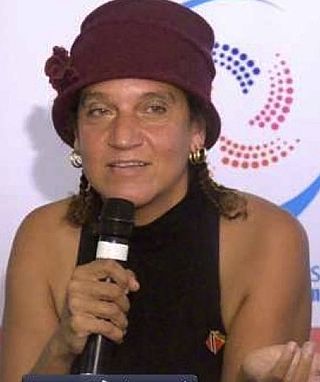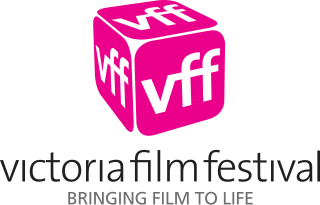
A film festival is an organized, extended presentation of films in one or more cinemas or screening venues, usually in a single city or region. Increasingly, film festivals show some films outdoors. Films may be of recent date and, depending upon the festival's focus, can include international and domestic releases. Some film festivals focus on a specific filmmaker, genre of film, or on a subject matter. Several film festivals focus solely on presenting short films of a defined maximum length. Film festivals are typically annual events. Some film historians, including Jerry Beck, do not consider film festivals as official releases of the film.

A short film is any motion picture that is short enough in running time not to be considered a feature film. The Academy of Motion Picture Arts and Sciences defines a short film as "an original motion picture that has a running time of 40 minutes or less, including all credits". In the United States, short films were generally termed short subjects from the 1920s into the 1970s when confined to two 35 mm reels or less, and featurettes for a film of three or four reels. "Short" was an abbreviation for either term.

The film industry or motion picture industry comprises the technological and commercial institutions of filmmaking, i.e., film production companies, film studios, cinematography, animation, film production, screenwriting, pre-production, post production, film festivals, distribution, and actors. Though the expense involved in making films almost immediately led film production to concentrate under the auspices of standing production companies, advances in affordable filmmaking equipment, as well as an expansion of opportunities to acquire investment capital from outside the film industry itself, have allowed independent film production to evolve.
An underground film is a film that is out of the mainstream either in its style, genre or financing.

Despite having a flourishing Chinese and Malay film industry in the 1950s and 1960s, Singapore's film industry declined after independence in 1965. Film production increased in the 1990s, which saw the first locally-produced feature-length films. There were a few films that featured Singaporean actors and were set in Singapore, including Saint Jack, They Call Her Cleopatra Wong and Crazy Rich Asians.
Kayo Hatta was an American filmmaker, writer, and community activist. She directed and co-wrote the independent dramatic feature-length film Picture Bride, which won the Sundance Film Festival Audience Award in 1995 for Best Dramatic Film.
Guerrilla filmmaking refers to a form of independent filmmaking characterized by ultra-low micro budgets, skeleton crews, and limited props using whatever resources, locations and equipment is available. Often scenes are shot quickly in real locations without any warning, and without obtaining filming permits.

Frances-Anne Solomon is an English-Caribbean-Canadian filmmaker, writer, producer, and distributor. She has lived in Britain, Barbados and Toronto, Canada.

The Cinemalaya Philippine Independent Film Festival is a film festival in the Philippines held annually during the month August at the Cultural Center of the Philippines Complex and various cinemas. Its aim is the development and promotion of Filipino independent films. The film festival is organized by the Cinemalaya Foundation, Inc. with the support of the Cultural Center of the Philippines and Econolink Investments, Inc.

Carlos Reygadas Castillo is a Mexican filmmaker. Influenced by existentialist art and philosophy, Reygadas' movies feature spiritual journeys into the inner worlds of his main characters, through which themes of love, suffering, death, and life's meaning are explored.

Arab cinema or Arabic cinema refers to the film industry of the Arab world which depends for most of its production on the Egyptian cinema.
Arts Engine is a film organization whose activities include documentary film production, a social-issue film festival and a virtual commons for filmmakers, activists, educators and students to share information. Arts Engine will premiere its eleventh annual Media That Matters Film Festival on October 27, 2011.

The International Short Film Festival Oberhausen, founded in 1954, is one of the oldest short film festivals in the world. Held in Oberhausen, it is one of the major international platforms for the short form. The festival holds an International Competition, German Competition, and International Children's and Youth Film Competition, as well as the MuVi Award for best German music video and, since 2009, the NRW Competition for productions from the German state of North Rhine-Westphalia.
La Cinéfondation is a foundation under the aegis of the Cannes Film Festival, created to inspire and support the next generation of international filmmakers.
In the year 2010, there was a dramatic increase and prominence in the use of 3D-technology in filmmaking after the success of Avatar in the format, with releases such as Alice in Wonderland, Clash of the Titans, My Name is Khan, Jackass 3D, all animated films, with numerous other titles being released in 3D formats. 20th Century Fox celebrated its 75th anniversary in 2010.

The Victoria Film Festival is a publicly attended film festival in Victoria, British Columbia, Canada running for ten days in February. The festival shows both Canadian and international films and unreels 150 films with 55 Features on 6 screens around Victoria. It attracts a continually growing audience, reaching 24,000 in 2011. The festival began in 1995 and is a provincially registered non-profit and federally registered charitable organization.

Shirley Cheechoo is a Canadian Cree actress, writer, producer, director, and visual artist, best known for her solo-voice or monodrama play Path With No Moccasins, as well as her work with De-Ba-Jeh-Mu-Jig theatre group. Her first break came in 1985 when she was cast on the CBC's first nations TV series Spirit Bay, and later, in 1997, she found a role on the CBC's TV series The Rez.

Sundance Institute is a non-profit organization founded by Robert Redford committed to the growth of independent artists. The institute is driven by its programs that discover and support independent filmmakers, theatre artists and composers from all over the world. At the core of the programs is the goal to introduce audiences to the artists' new work, aided by the institute's labs, granting and mentorship programs that take place throughout the year in the United States and internationally.
One+One Filmmakers Journal was a printed and web-based film magazine published in Brighton, England. It was founded in May 2009 as One+One The Brighton Filmmakers Journal by seven members of the Brighton Filmmakers Coalition, but during 2009 and 2010 it became a separate entity to the Coalition and also dropped its Brighton title affiliation. It ceased publication in 2014.

Viddsee is a storyteller platform for short premium content, with over 2 billion views and more than 3,000 strong storytelling community. It has a mission to empower storytellers through its system by providing content to audiences with its studio and multi-platform network. Viddsee connects storytellers with audiences, brands, and partners to produce and market films and series with its system.












